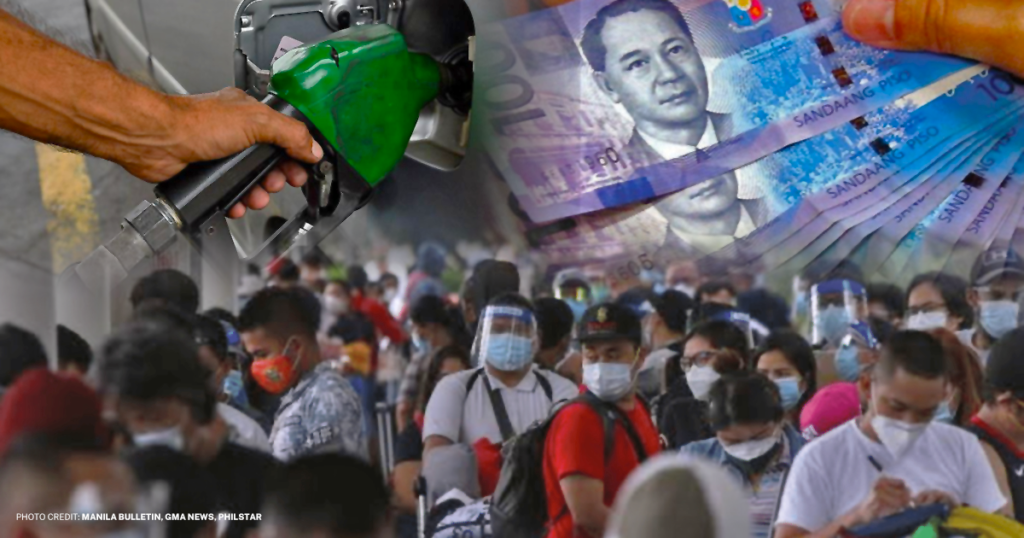
Research group IBON said that the huge drop in the number of labor force participants and employed persons from December 2021 to January 2022 is concerning and underscores the country’s precarious jobs situation. This is even more so in light of oil price hikes negatively affecting incomes and livelihoods and the Duterte administration’s stinginess with giving ayuda and support to distressed Filipinos, production sectors and small businesses, said the group.
Comparing just released January 2022 labor force data to December 2021 data, the number of labor force participants fell by 3.6 million to 45.9 million from 49.5 million. This was reflected in the decline in the number of employed persons by 3.3 million to around 43 million in January 2022 from 46.3 million last month. The slight decrease in the number of unemployed by 347,000 did little to offset this.
IBON said that these indicate that the economy has not yet recovered from the pandemic and is unable to generate regular or permanent work for millions of jobless Filipinos. Even those in irregular or informal work are losing their jobs and joining the millions of discouraged workers discounted from the labor force.
Most if not all of the employment losses are in part-time work and shows just how precarious the jobs being generated are, said the group. By hours worked, the number of those working less than 40 hours fell by 3.8 million from 16.8 million in December 2021 to 13 million in January 2022. Full-time workers only grew by 766,000 and those “with a job, not at work” declined by 214,000
By class of worker, the number of self-employed without any paid employee fell by 1.5 million from 12.9 million to 11.4 million. Employers in own family-operated farms or businesses increased by just 35,000 while unpaid family workers decreased significantly by 1.8 million.
The group noted that many employed Filipinos are in irregular or informal work. IBON estimates that 16.8 million or 39% of jobs are now informal work made up of the self-employed, those working in small family farms or businesses, domestic help, or unpaid family workers. This does not even take into consideration irregular workers in private establishments.
The sectors worse hit by declines in employment in this period are those that also tend to have seasonal or temporary and irregular work, said IBON. These include agriculture (2.5 million) and wholesale and retail trade (965,000).
IBON said that the jobs crisis is made worse with oil price hikes affecting Filipinos’ livelihoods and incomes. In the past two weeks, oil prices spiked to historic highs – gasoline by as much as Php7.20 per liter, diesel by as much as Php13.25 per liter and kerosene by Php10.50 per liter. The impact of this on incomes and livelihoods is significant – transport group PISTON for instance estimates that jeepney drivers are losing up to Php363 per day from the fuel price hikes. Meanwhile, farmers have added Php2,000 per hectare to their expenses to cover higher fuel costs. Fisherfolk group Pamalakaya said that fuel costs are taking up nearly 80% of municipal and small fisherfolks’ production cost.
To make matters worse, the Duterte administration continues its stinginess with ayuda and subsidies, said the group. It only plans to give a paltry Php2,400 for a year or Php200 per month to the poorest 50% of Filipino households citing the lack of funds for not giving more. The Php3 billion in fuel subsides is also limited, going only to 377,443 qualified beneficiaries in the transport sector, and 158,730 corn farmers and fishermen. This token assistance is not enough to cushion the effects of soaring fuel prices and leaves out millions of Filipinos in need.
IBON said that the government can restore lost livelihoods and incomes and mitigate the blow of high oil prices by giving substantial ayuda and support to struggling Filipinos, production sectors and small businesses. Instead of prioritizing funds for non-urgent infrastructure and debt servicing, it could realign hundreds of billions of pesos to social assistance and afford to give each of the 18 million poorest families Php10,000 for at least two months if it really wanted to.






